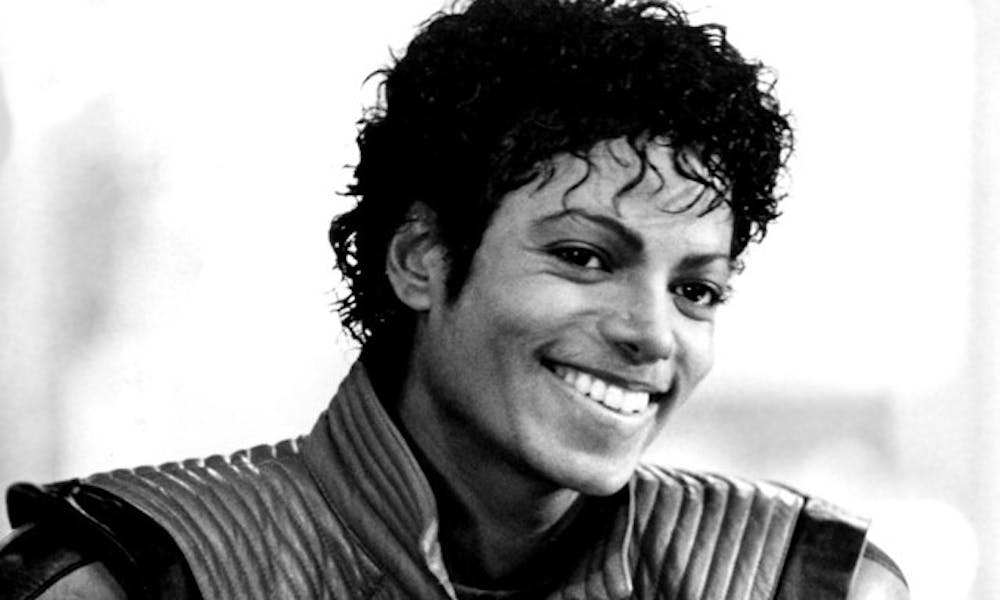The following is a smattering of the names Mark Anthony Neal dropped in a recent 50-minute, streaming Q&A: Skip Gates, Rick James, Eddie Murphy, Jay-Z, James Brown, Courtney Love, Sammy Davis Jr., Walter Yetnikoff, Luther Vandross, Prince and, of course, Barack Obama. All of them are tangentially related to the cultural phenomenon of Michael Jackson, or, in some way, they have influenced Neal’s interpretation of the King of Pop’s legacy, a field that he considers as seriously as any other professor. “Yes, it is entertainment,” the professor of African & African American Studies conceded. “But it’s also part of the American cultural legacy, and serious artists, if they do serious work—we need to take that work seriously, as artists, critics, scholars and, in some cases, simply as fans.”
So much he explained in an installment of Duke’s latest digital initiative, Online Office Hours, in which a professor uses a streaming video podcast to take questions on his field of expertise from e-mail, Facebook and Twitter. (The in-the-flesh moderator seems curiously antiquated.) The segment aired live on USTREAM—the same site luminaries like Stephon Marbury have used to broadcast their life—and subtly highlighted the Web site’s first higher education partnership. Neal’s episode was sandwiched by drop-ins with David Goldstein, director of the IGSP Center for Human Genome Variation, and Bill Chameides, dean of the Nicholas School. That is, not cultural critics of Jackson’s discography like Neal, who previously wrote the lead essay for a three-CD Jackson collection and now is writing album notes for unreleased Jackson 5 master recordings. Neal is teaching two classes this semester, one of which is “Spike Lee and the New Black Aesthetic.” His widely-read blog is called NewBlackMan.
He not only grooved to Jackson’s music as a kid, but also used a glorified version of Jackson as inspiration. Trying to imagine one’s place in the world is a harrowing, oceanic experience, and role models bring us to shore. So Neal turned to the King of Pop for entertainment, for comfort and, when dealing with his first inklings of romance, for guidance.
I can’t know for sure but I would bet that, as a child, Neal absorbed Jackson’s music the same way he did for the camera Aug. 28. When the Jackson 5’s “Can You Remember” started to play, Neal, sitting in front of a white background wearing a black button-down shirt with white stripes and thick-rimmed glasses, bopped his head, pursed his lips, swayed along and smiled like the camera wasn’t rolling.
From there he asserted that Jackson, and others, made white America comfortable with black cultural icons in the mainstream, which, eventually, paved the way for Obama’s election. “Their successors,” he said, referring to forebearers like Jackson, Bill Cosby and Eddie Murphy, “were very much like the first black family that moved into a white neighborhood.” He hadn’t referenced Obama since the very beginning of his answer, but the allusion was about as catchy as an M.J. beat.
A viewer e-mailed in a question about how Jackson’s death and so-called “tabloid woes” would affect further interpretation of his body of work. Neal localized the response. In the weeks since Jackson’s death, he reminisced, Neal’s young daughters started listening to Jackson and instinctively choosing their favorite songs, instead of simply accepting their father’s playlist. His music will outlast the static noise, Neal predicted.
More questions rolled in from e-mail and Twitter, and Neal handled them easily, citing his work on black popular culture at will. Soon, the last of his three hand-picked tracks, “Wanna Be Starting Something,” played as the screen faded. The door to office hours slammed shut with a blissful thud.
Get The Chronicle straight to your inbox
Signup for our weekly newsletter. Cancel at any time.

